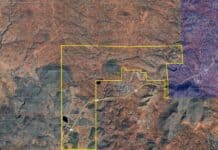
A pair of projects are scheduled to be on this year’s city docket as major plan amendments — the first in four years.
In a report from Senior Planner Mike Raber to city staff, he wrote that major amendments to the Sedona Community Plan are considered once per year by state law.
This year there are two amendment proposals. The Sedona Planning and Zoning Commission will consider these amendment requests on July 6 and the Sedona City Council will consider them, tentatively scheduled on Sept. 15.
“Although it will be several months before these applications are scheduled for your consideration, Arizona state law requires an early distribution of Major Community Plan amendments,” Raber wrote. “By state law, all Major Amendments must be considered together at one public hearing this calendar year.”
At least 60 days prior to the public hearing notification process for the commission, the city must provide the amendment proposals to the commission, council, Coconino and Yavapai counties, Northern Arizona Council of Governments, Arizona Department of Commerce and Department of Water Resources. The proposals are also distributed to other agencies, utilities and internal city departments for comment.
Council must take action by the end of the year in order to approve the amendments. A two-third vote of the council is required to approve the plan amendments.
The two major plan amendments to be considered later this year include the following:
■ Jordan Lofts, originally called Sedona Lofts
The request is for approval of a Major Sedona Community Plan amendment in order to develop 84 townhome-style loft apartments. The subject parcel consists of two parcels totaling 6.5 acres along the east side of Jordan Road, bisected by Quail Tail Trail and north of Wilson Canyon Road at 630 Jordan Road and 500 Quail Tail Trail.
The western 2.1-acre parcel is designated as Medium and High Density Multi-family and the eastern 4.4-acre parcel is designated Single-family Low Density on the Sedona Community Plan Future Land Use Map. The major amendment request would re-designate the subject property, both parcels, as “Multi-family High Density.”
■ Uptown Sedona Parking Structure
The request is for approval of a city-initiated amendment and rezoning to provide for development of a parking structure in Uptown.
The subject property comprises 1.24 acres along the north side of Forest Road and is designated Single-family Low Density on the Sedona Community Plan’s Future Land Use Map. The major amendment request would re-designate the property as Commercial.
Finding a Definition
The definition of what is considered a major plan amendment compared to a minor one is a bit vague. In fact, in November 2019, city staff was seeking to better define each when the topic went before the Sedona Planning and Zoning Commission. But, the commission took no action on making any changes and the topic has not come back before it since.
According to a city report presented at that meeting, a major amendment to the general plan is defined by state statute as “a substantial alteration of the municipality’s land use mixture or balance as established in the municipality’s existing general plan land use element.”
The statute allows cities and towns to define the criteria if proposed amendments to their general plans are substantial alterations and therefore a major amendment. All amendments to the Sedona Community Plan not defined as “major” are considered “minor” amendments.
Since 2001, there have been some changes to Sedona’s major amendment criteria. However, staff looked at land use-related major amendment criteria for 21 other Arizona cities and towns and believes that Sedona’s criteria is one of the most, if not the most, restrictive.
“The once-per-year timeframe and very high citywide noticing costs can discourage potential applicants from seeking to amend the plan,” Raber wrote in his report in 2019. “For residential projects that may require higher densities to create more affordable housing options, it may be an unnecessary hurdle when rezoning and development review approvals are still required. Minor amendments require the same level of staff review and must be approved through public hearings with the planning and zoning commission and city council, but can occur throughout any given year.”





















